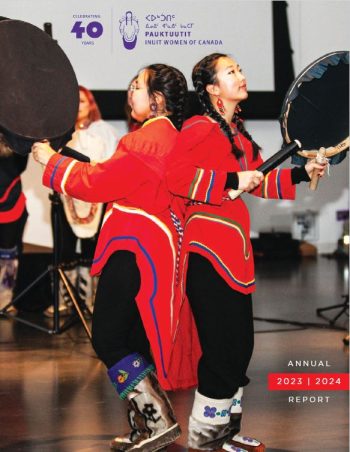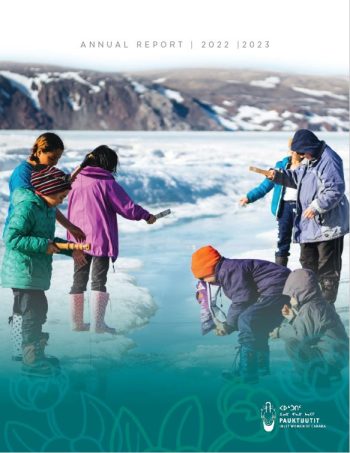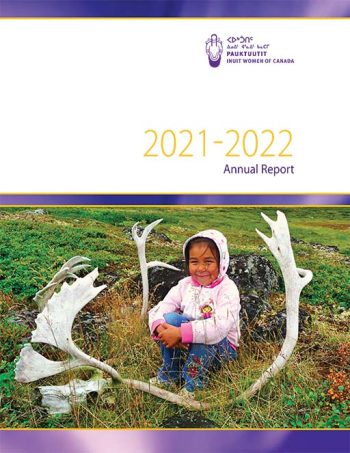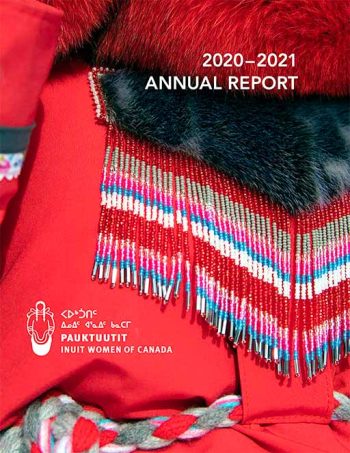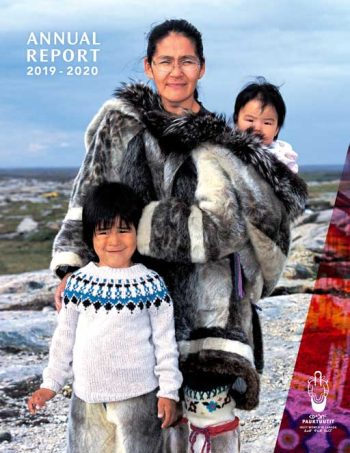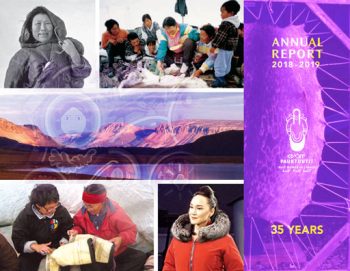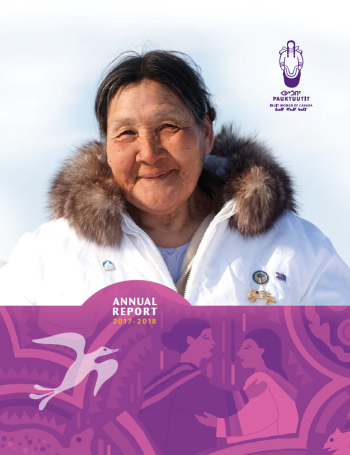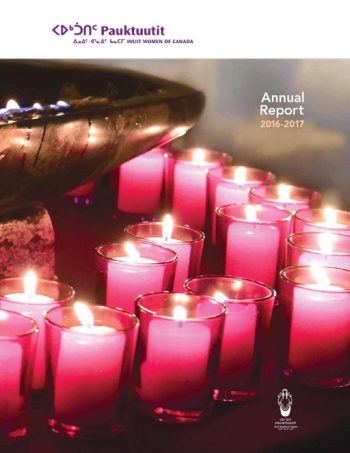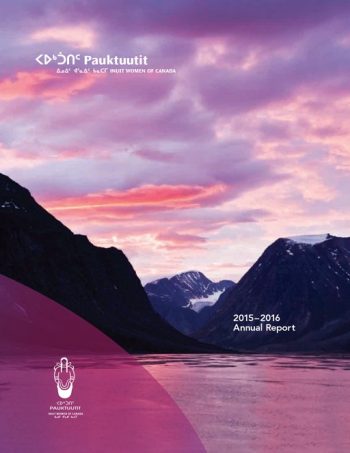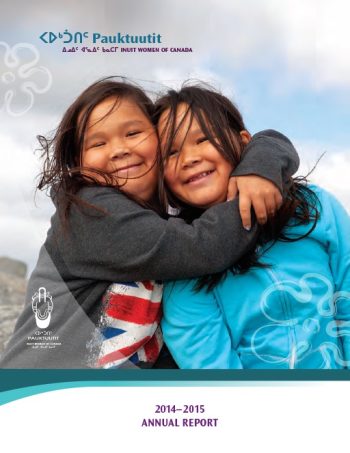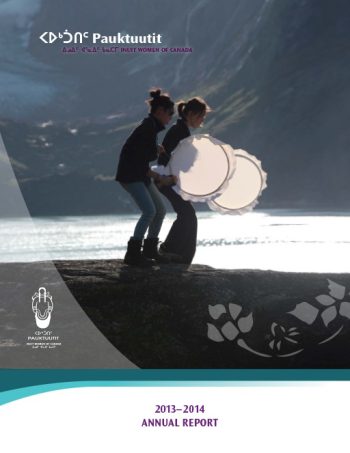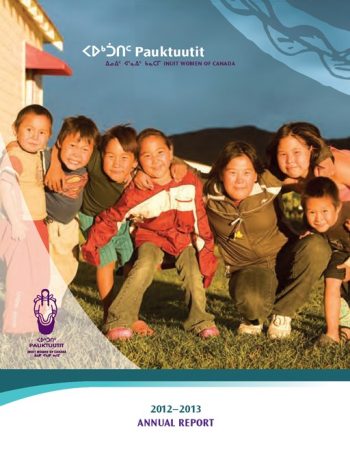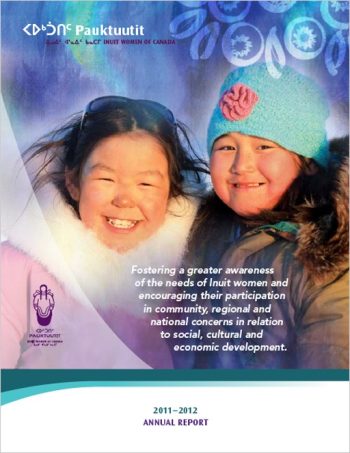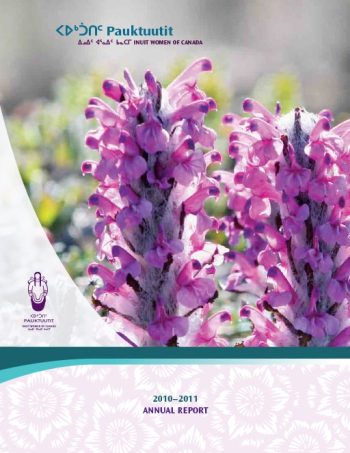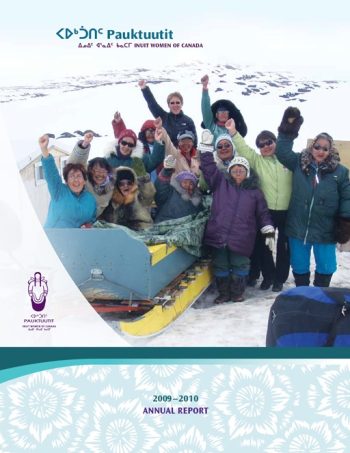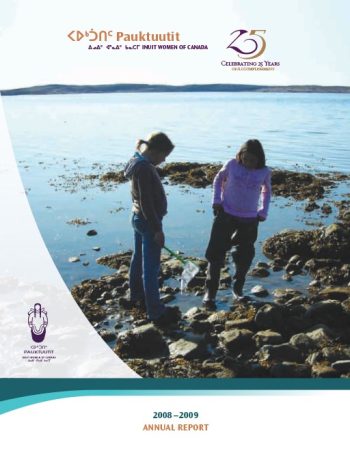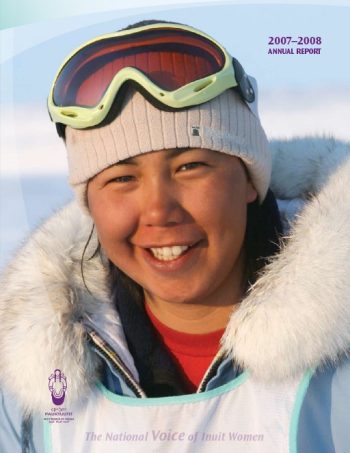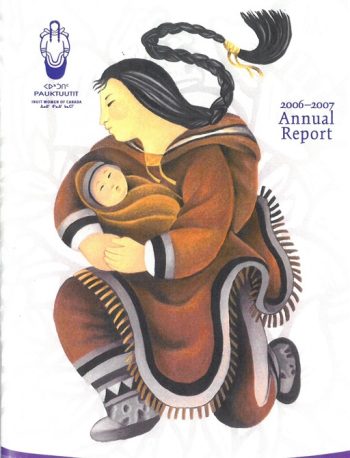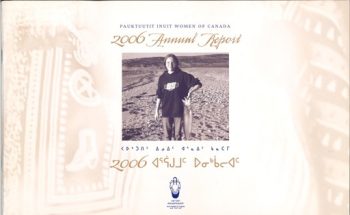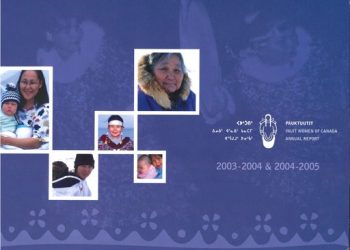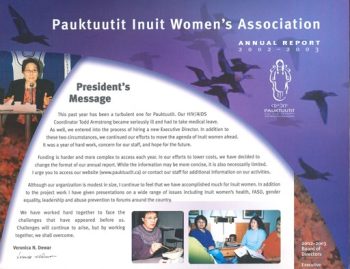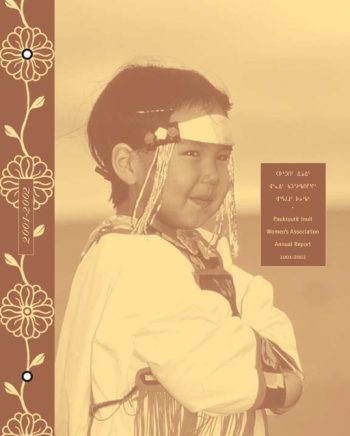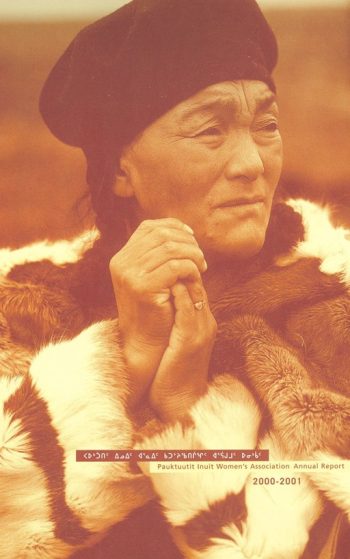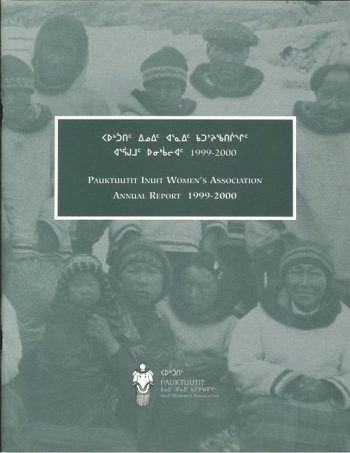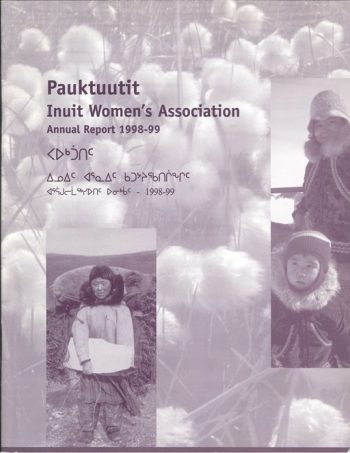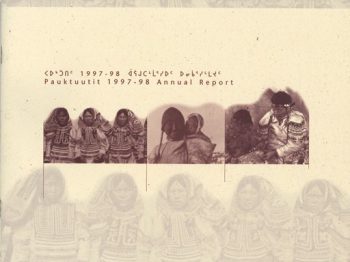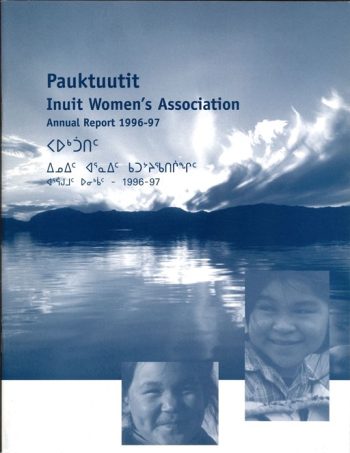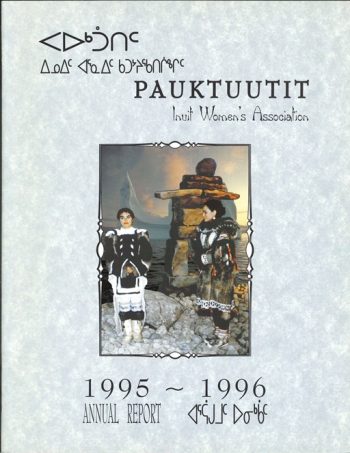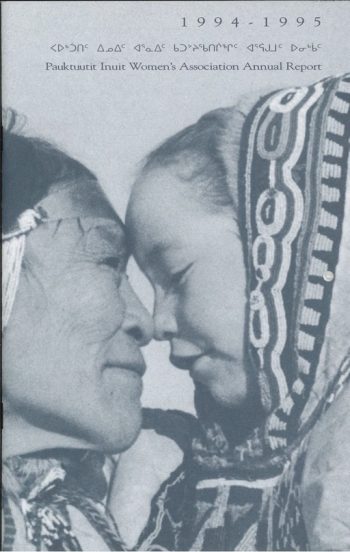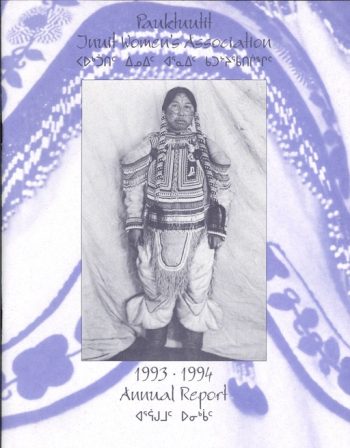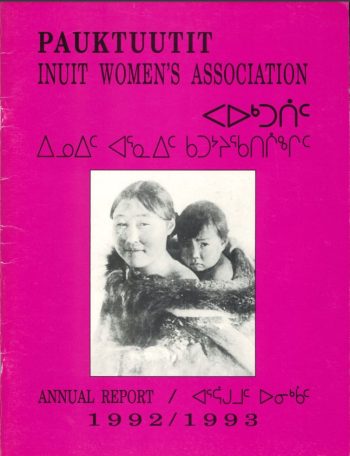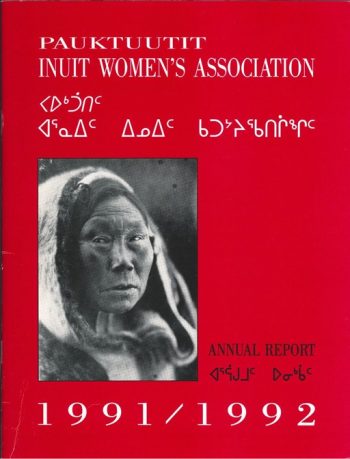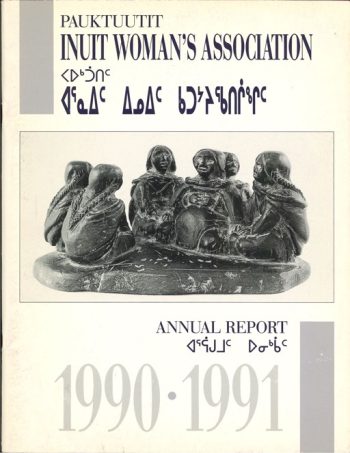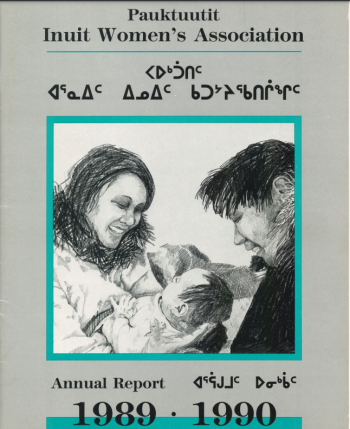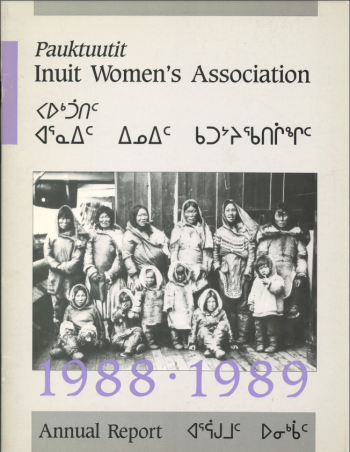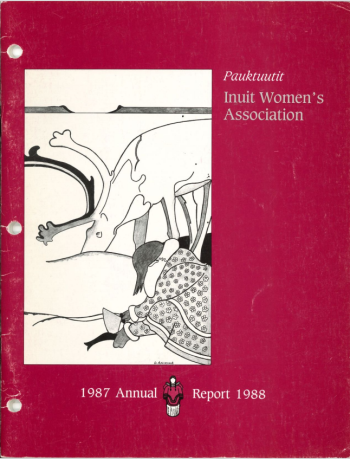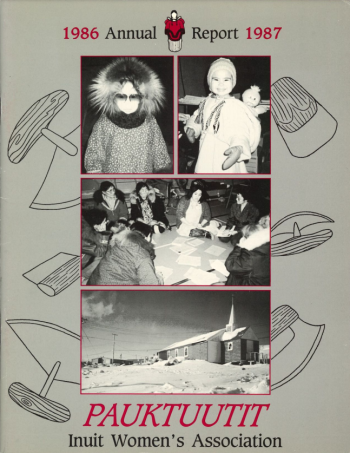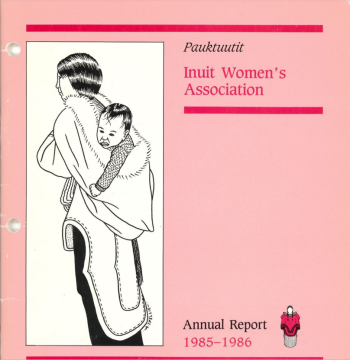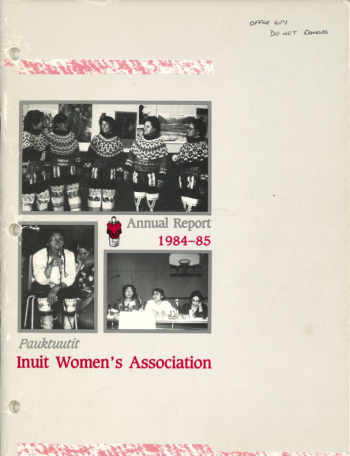Publications
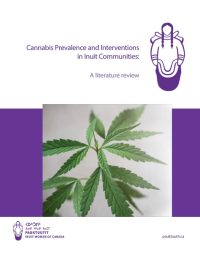
Cannabis Prevalence and Interventions in Inuit Communities – A literature review
This report presents the findings of a scoping review conducted to inform a larger project with Inuit women, youth, and their partners that will develop an awareness and education campaign that encompasses a harm reduction approach to cannabis use. The scoping review sought to identify and summarize academic and grey literature about:
- Cannabis use by Inuit and by Indigenous peoples in Canada overall; and
- Effective substance use interventions described and evaluated by/for Indigenous peoples in Canada (including culture and land-based interventions, gender and trauma informed interventions, and strength based wholistic interventions).
Given the limited evidence on cannabis use and interventions amongst Inuit, the literature review was expanded to include information about cannabis prevalence for Indigenous peoples in Canada and circumpolar regions and substance use treatment interventions for Indigenous peoples in Canada.
https://pauktuutit.ca/wp-content/uploads/Cannabis-Literature-Review-v2-FINAL-Inuktitut.pdf
Year Published 2020
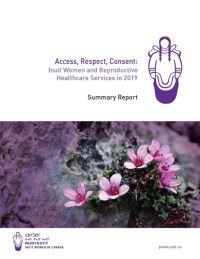
Access, Respect, Consent: Inuit Women and Reproductive Healthcare Services in 2019 – Summary Report
The knowledge generated in this report is based on a one-year study that included an environmental scan and community visits across Inuit Nunangat. We covered Inuit women’s access to reproductive healthcare, from sexual and reproductive health education and information, temporary and permanent contraception, pregnancy options, pre- and post-natal care and birthing. This report is based on the belief that sexual and reproductive health and rights are fundamental human rights, and Inuit women must have equitable access and care.
The research was headed by Pauktuutit Inuit Women of Canada and with the support of Dianne Kinnon (Kinnon Consulting). We are appreciative to the many individuals and health service providers who contributed their insight, knowledge, and expertise to this report. This important work would not have been possible without them and their willingness to discuss very personal and sometimes disturbing information.
First and foremost, we extend our most sincere gratitude to the women from Rankin Inlet, Arviat, Kuujjuaq, Inuvik, Iqaluit and Nain who volunteered to participate in interviews and community consultations. The information they bravely shared on Inuit women’s experiences as it relates to sexual and reproductive health and rights is necessary to achieving gender equality by ensuring that all Inuit women and girls can exercise their rights free from coercion, violence, discrimination and abuse.
As well, we are extremely grateful to the 22 sexual and reproductive health care service providers who contributed information on the challenges and constraints facing Inuit women and girls as they relate to their sexual and reproductive health needs and actualizing their rights.
Funding for this research was provided by the First Nations Inuit Health Branch of Indigenous Services Canada.
https://pauktuutit.ca/wp-content/uploads/Pauktuutit-Reproductive-Health-Inuktitut.pdf
Year Published 2020
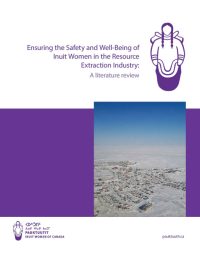
Ensuring the Safety and Well-Being of Inuit Women in the Resource Extraction Industry: A literature review
This literature review will draw on human rights codes, legislations and frameworks that are both international and national in scope in order to highlight the roles and responsibilities of governmental, non-governmental and industry acts in safeguarding the well-being of Inuit women and communities. The international human rights frameworks will provide an overview of how women human rights defenders address regional and community issues related to extractive operations. It will also highlight the responses of industry and state actors towards women human rights defenders, in addition to showcasing the global trends of gender-based violence associated with the resource extraction industry.
Specific international human rights frameworks to be used in this literature review, which will present the international standards of human rights in relation to Indigenous peoples, include the United Nations Declaration on the Rights of Indigenous Peoples (UNDRIP) and the United Nations Declaration on Human Rights (UDHR). National frameworks, such as the 94 Calls to Action by the Truth and Reconciliation Commission of Canada (TRC) and the Canadian Charter of Rights and Freedoms will also be assessed in order to emphasize the obligations of the Canadian government in preserving and improving the political, social and economic rights of Inuit women, children and communities. The roles and responsibilities of provincial and territorial actors with respect to ensuring the well-being of Inuit women and communities will also be outlined, as they pertain to legislation applicable to the four regions of Inuit Nunangat, respectively.
https://pauktuutit.ca/wp-content/uploads/Litterature-Review-V9-updated.pdf
Year Published 2020
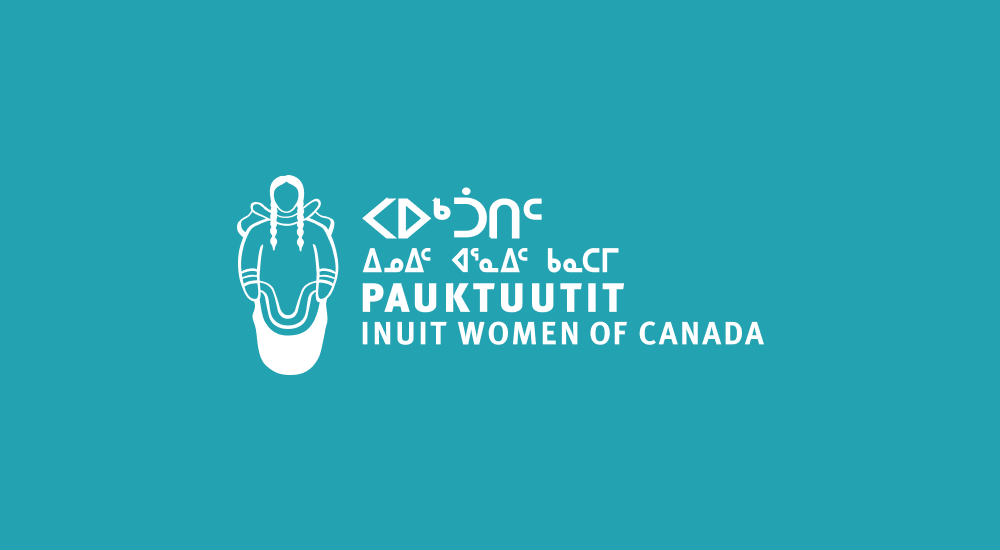
Access to Food Supports in Urban Centres
Food insecurity is the lack of access food primarily due to a lack of money. It’s a serious public health problem that negatively impacts physical, mental, and social health. This problem can become worse for Inuit in urban areas during this COVID-19 pandemic as many services people have had to close their doors.
We know this is a serious problem for many Inuit, and specifically Inuit women. It can be worse for those who live in overcrowded homes or who don’t have secure housing whether in Inuit Nunangat or in cities in the south. The federal government has made efforts to be sure that all Canadians have access to the food they need to live a healthy life during this time.
The Canadian government has provided an extra $100 million to support Canadian food banks and local food organizations. These funds have distributed to national food serving organizations including Food Banks Canada ($50 million), Second Harvest, Community Food Centres Canada, and the Breakfast Club with $5 million to each.
An additional $30 million is available to support local food organizations. Pauktuutit and ITK are advocating for some of these funds be given directly to Inuit to support food banks and food serving organizations used by Inuit.
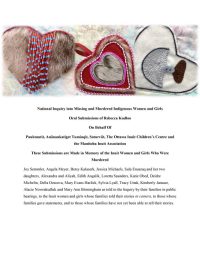
Oral Submissions of Rebecca Kudloo
On Behalf Of Pauktuutit, Anânaukatiget Tuminqit, Saturviit, The Ottawa Inuit Children’s Centre and the Manitoba Inuit Association
These Submissions are Made in Memory of the Inuit Women and Girls Who Were Murdered
Joy Semmler, Angela Meyer, Betsy Kalaserk, Jessica Michaels, Sula Enuaraq and her two daughters, Alexandra and Aliyah, Edith Angalik, Loretta Saunders, Katie Obed, Deidre Michelin, Della Ootoova, Mary Evans Harlick, Sylvia Lyall, Tracy Uttak, Kimberly Jarause, Alacie Nowrakudluk and Mary Ann Birmingham as told to the Inquiry by their families in public hearings, to the Inuit women and girls whose families told their stories in camera, to those whose families gave statements, and to those whose families have not yet been able to tell their stories.
https://pauktuutit.ca/wp-content/uploads/MMIWG-Oral-Submission.pdf
Year Published 2018
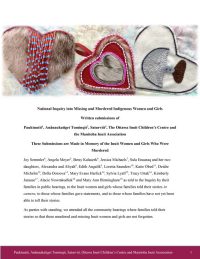
Written submissions of Pauktuutit, Anânaukatiget Tuminqit, Saturviit, The Ottawa Inuit Children’s Centre and the Manitoba Inuit Association
These Submissions are Made in Memory of the Inuit Women and Girls Who Were Murdered Joy Semmler, Angela Meyer, Betsy Kalaserk, Jessica Michaels, Sula Enuaraq and her two daughters, Alexandra and Aliyah, Edith Angalik, Loretta Saunders, Katie Obed, Deidre Michelin, Della Ootoova, Mary Evans Harlick, Sylvia Lyall, Tracy Uttak, Kimberly Jarause, Alacie Nowrakudluk and Mary Ann Birmingham as told to the Inquiry by their families in public hearings, to the Inuit women and girls whose families told their stories in camera, to those whose families gave statements, and to those whose families have not yet been able to tell their stories.
https://pauktuutit.ca/wp-content/uploads/MMIWG-Written-Submission.pdf
Year Published 2018
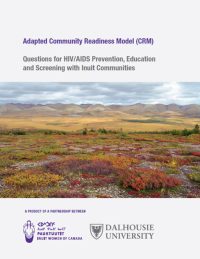
HIV AIDS Adapted Community Readiness Model
Pauktuutit partnered with Dalhousie University on a project funded by the Canadian Institutes of Health Researched, titled “Adapting the Community Readiness Model (CRM) for HIV/AIDS Prevention, Education and Screening with Inuit Communities Developing Strategies for HIV Prevention with Community Input & Collaboration.” For this project, we looked at initiatives that focus on HIV prevention, education and screening. The CRM is a tool that can help communities determine how ready they are to deal with a specific issue. Our research project aimed to adapt, pre-test and use the CRM to identify how ready three communities (Arviat, Clyde River and Kugluktuk) are to deal with HIV. We were guided by a project advisory committee (Canadian Inuit HIV/AIDS Network (CIHAN)), Community Health Representatives (CHRs) from the three communities and a research team. Together, we worked towards adapting, validating and translating this new CRM.
https://pauktuutit.ca/wp-content/uploads/Saimaniik-Toolkit_ENG.pdf
https://pauktuutit.ca/wp-content/uploads/Adapted-CRM-for-HIVAIDS-with-Inuit-Communities.pdf
https://pauktuutit.ca/wp-content/uploads/Pauktuutit-CRM-Questions-booklet-oct2019-web2.pd
fhttps://pauktuutit.ca/wp-content/uploads/Pauktuutit_CRM_Innuinaqtun.pdf
Year Published 2019
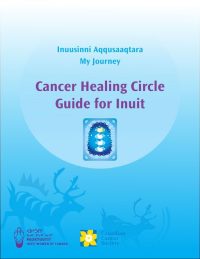
Cancer Healing Circle Guide for Inuit
This guide was created as part of our Inuusinni Aqqusaaqtara – My Journey cancer project and generously supported by the Canadian Cancer Society.
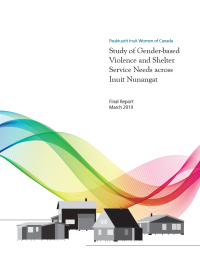
Study of Gender-based Violence and Shelter Services Needs across Inuit Nunangat
- https://pauktuutit.ca/wp-content/uploads/PIWC-Rpt-GBV-and-Shelter-Service-Needs-2019-03.pdf
- https://pauktuutit.ca/wp-content/uploads/PIWC-Rpt-GBV-and-Shelter-Service-Needs-2019-03-Executive-Summary.pdf
- https://pauktuutit.ca/wp-content/uploads/PIWC-Rpt-GBV-and-Shelter-Service-Needs-2019-03-Recommendations.pdf
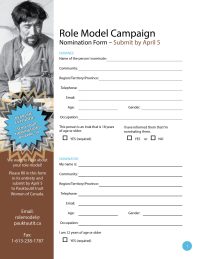
Role Model Nomination Form
Youth, women and men, submit your story and join the role model campaign!
Approximately six people from across Inuit Nunangat will be featured in a video and poster campaign that will share Inuit examples of healthy relationships and how to live free of violence.
The deadline is April 14.
- https://pauktuutit.ca/wp-content/uploads/Role-Model-Campaign-Nomination-2019-English.pdf
- https://pauktuutit.ca/wp-content/uploads/Role-Model-Campaign-Nomination-2019-N-Baffin-Pigiarniq-Fillable.pdf
- https://pauktuutit.ca/wp-content/uploads/Role-Model-Campaign-Nomination-2019-Nunavik-AiPaiNutaaq-Fillable.pdf
Year Published 2019
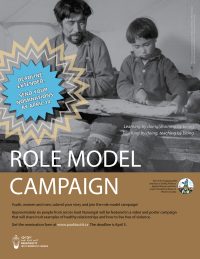
Role Model Campaign Poster
Youth, women and men, submit your story and join the role model campaign!
Approximately six people from across Inuit Nunangat will be featured in a video and poster campaign that will share Inuit examples of healthy relationships and how to live free of violence.
Introduction
This Role Model Campaign seeks to encourage all people – including youth and elders – to share and learn more about what healthy relationships look like in the home, in the community, and in relationships with a boyfriend, girlfriend or spouse. To nominate a role model is to recommend someone who makes you feel safe, who teaches through their actions how to act and be peaceful and shows what it means to live a life free from violence. Those nominated must be 18 years of age or older and can have any gender identity.
The campaign is a way for community members across Inuit Nunangat to acknowledge someone in their daily life who demonstrates characteristics of Inuit societal values that foster healthy relationships, gender equality and a way of living free from violence.
Characteristics of a role model
Respectful
Respectful of all people and the land, makes others feel safe, is trustworthy and treats everyone fairly
When experiencing conflict and you need support, they are trusted
Example: “I could tell them anything. I feel safe and I know they won’t gossip.”
When in a relationship, provides care and respect for their partner
Example: “No matter how they are feeling, they don’t judge, and they take the time to listen and support their partner. They live and share a life free of violence and harm.”
Ready to help
Always ready to help friends, family and the community
Offers to help someone who is experiencing violence at home
Example: “My neighbours noticed that I was facing challenges at home and came to ask me what she could do to help.”
Offers to help someone who is grieving
Example: “My friend noticed that I was going through a tough time and took the time to offer to go out for a long walk together.”
Ready and willing to share
Uses skills and knowledge to help those around them
A community member who is skilled at helping people resolve issues
Example: “My sister-in-law helped my brother and I to find positive solutions.”
A youth at school is attentive to others in the school yard
Example: “When kids start a fight my friend stops them, doesn’t take sides and helps those involved talk it out calmly.”
Welcoming and inclusive
Being welcoming, open and inclusive
A community member whose home offers a safe and welcoming environment
Example: “In their home I feel safe. They never shout. They work to find solutions.”
A community member who always ensures everyone’s participation in all activities, regardless of gender or age
Example: “Our shop teacher invites all students to work together. Girls and boys feel equally welcome and supported.”
Ready and willing to teach and learn
Learns and teaches by doing
An elder takes time to share lessons on how to keep harmony
Example: “After school, my grandmother shares stories to help me learn how to be responsible for my own actions.”
Girls and boys enjoy equal opportunities to feel safe
Example: “Our community hockey coach is honest and respectful and expects us to behave the same way on and off the ice.”
Year Published 2019
- https://pauktuutit.ca/wp-content/uploads/Role-Model-Campaign-Poster-2019-English-1.pdf
- https://pauktuutit.ca/wp-content/uploads/Role-Model-Campaign-Poster-2019-N-Baffin.pdf
- https://pauktuutit.ca/wp-content/uploads/Role-Model-Campaign-Poster-2019-Nunavik.pdf
- https://pauktuutit.ca/wp-content/uploads/Role-Model-Campaign-Poster-2019-Inuvialuit.pdf
- https://pauktuutit.ca/wp-content/uploads/Role-Model-Campaign-Poster-2019-Nunavik-English.pdf
- https://pauktuutit.ca/wp-content/uploads/Role-Model-Campaign-Poster-2019-Nunavut-N-Baffin.pdf
- https://pauktuutit.ca/wp-content/uploads/Role-Model-Campaign-Poster-2019-Nunavut-English.pdf
- https://pauktuutit.ca/wp-content/uploads/Role-Model-Campaign-Poster-2019-Nunatsiavut.pdf
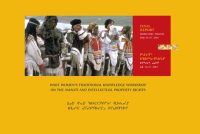
Inuit Women’s Traditional Knowledge Workshop on the Amauti and Intellectual Property Rights
This workshop was the first national consultation with Inuit women in Canada on the issues of protecting their cultural property, traditional knowledge and intellectual property rights. It was also the culmination of several years of research and development. Pauktuutit would like to extend its thanks and appreciation to the many individuals and organizations that made this workshop possible.
Year Published 2001
